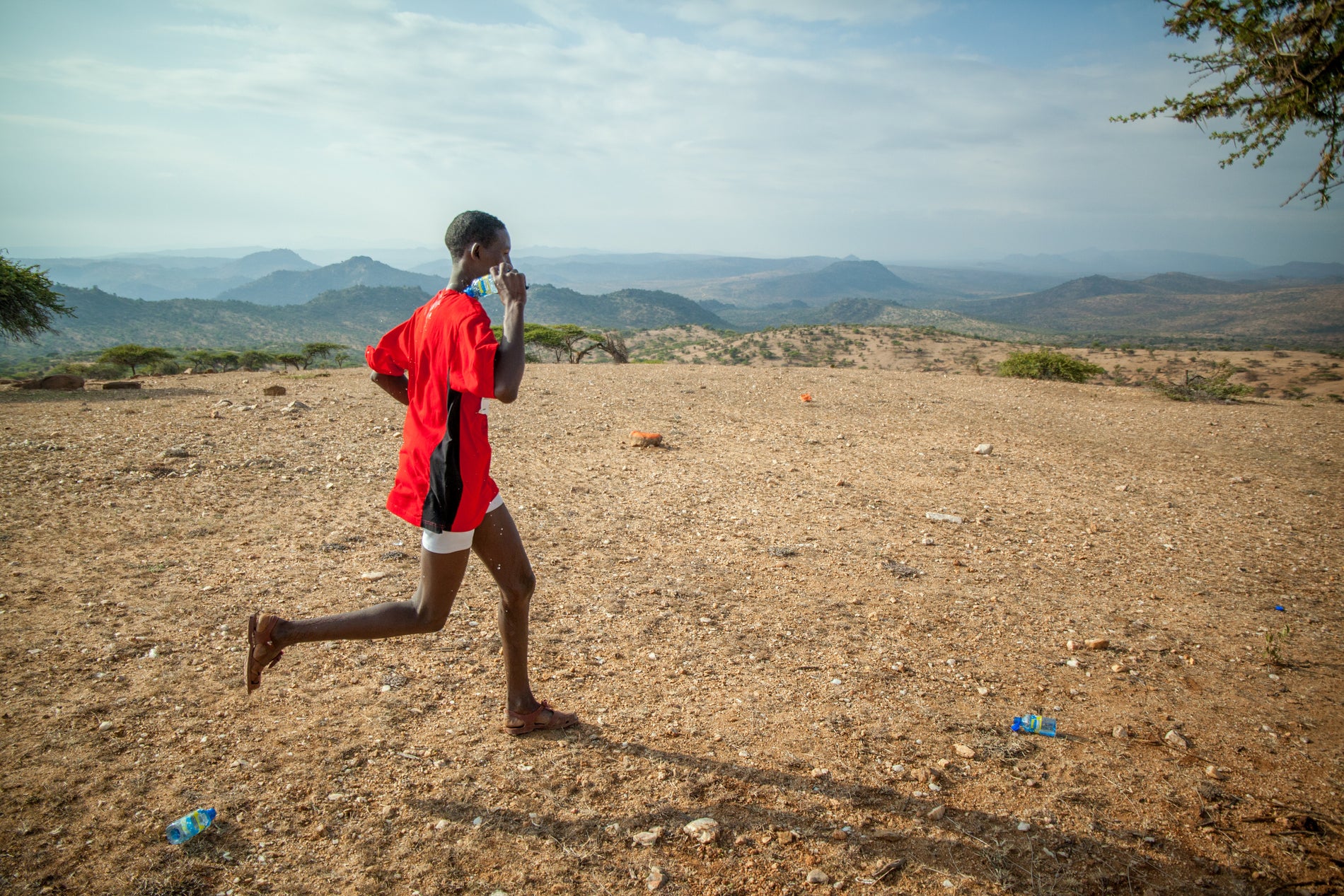
When debating why Kenyan runners are the best in the world, one of the most common arguments is that children grow up running barefoot. But is that true?
Looking back at my childhood: it’s true. Shoes, especially among kids, were not a big deal.
I grew up in a peri-urban settlement around Kisumu town. My first shoes were the Jellies, we used to call them “Sandak.” Interestingly Sandak is Hebrew for ‘companion of a child.’ Story for another day. My sandak shoes and my Chicago bulls pants were the real deal back then.
Every time we had a school break, we visited extended families upcountry. On those visits to family, it was not uncommon that kids ran around and sometimes went miles away from home barefoot. Joining in the fun, and running around with no shoes, we were just happy and fine. Of course, the fun sometimes ended with a cut or a serious infection.
I’m in my late 20s now, and I imagine my agemates and before, this is a normal story. Schooling barefoot was normal. If you were lucky enough, you may have owned a pair of Akalas. Akalas are simple sandals made from used old tires. Much like the sandak sandals, they don’t really have any cushioning or support, just basic protection from the ground.
Still today, you are sure to spot runners barefoot or in canvas shoe local races such as the Amazing Maasai marathon.

So yes, lots of children run barefoot or in minimal footwear as children. Perhaps for present day Kenyan athletes, such a childhood might have unknowingly come with early physical adaptation to running. The research does indeed indicate that running barefoot builds foot strength and improves performance. Even if you’re not into barefoot running, you can benefit from training in more minimal shoes.
It’s fair to note professional athletes aren’t training barefoot nor racing barefoot now. You can only run so far barefoot, especially while running on paved roads. Athletes might include exercises like hops or shorter barefoot runs, but for the bulk of training to build fitness and speed, it is helpful to wear shoes so your feet can endure the many miles.
But as far as the legend of barefoot Kenyan children running around and that helping them become great runners, there is certainly some truth to it.
Tapping into that simplicity and the actual spirit of Kenyan running, we sought to build shoes that help everyone run Kenyan. A process that involves continuously listening and getting feedback from professional and upcoming runners while making our shoes. Hopefully, we are connecting you, and every runner across the globe to that simplicity and the actual spirit of Kenyan running - one runner at time.




